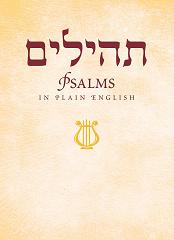-
•
•
32 responses
Last week a Belgian church member, with a long record of outstanding leadership service in the Church, put a link on his Facebook page. The link went to an article in a local newspaper, titled “Homosexuality kills more than smoking” (translated), reporting on the recent anti-gay outburst of Jim Wallace, head of the Australian Christian Lobby. With a short note next to the link, our Belgian brother indicated his approval of Wallace’s views. His Facebook has numerous church members and outsiders as friends. Read More
-
•
•
11 responses
Prudence requires that we recognize the reality of times other than the present, specifically, future times. Altruism requires that we recognize the reality of people other than ourselves. Prudence allows us to delay gratification for our own future benefit. We budget, we plan ahead, we save for a rainy day. Altruism allows us to do things unselfishly, for the good of others. If you accept Thomas Nagel’s structuralist case for altruism, you recognize that there is rational justification for doing good for others that is not dependent on ulterior motives. We are able to help others, even if it doesn’t make… Read More
-
•
•
59 responses
Julie Smith opens her excellent T&S review of Turner’s Brigham Young: Pioneer Prophet (which I’ve not yet read) with clear reservations about recommending this book to the “average” church member. Read More
-
•
•
14 responses

Over the past year or so, I have become increasingly enamored of a popular Brazilian song, one that today makes me tear up simply from hearing the opening chords. On the surface, at least, the song, “Cálice” (Chalice), is quite religious. And its refrain is simple: Father, let this cup pass from me Father, let this cup pass from me Father, let this cup pass from me This cup of bloody red wine. And today, of all days, I think this song is particularly fitting. I will think of it during a moment of silence. Read More
-
•
•
80 responses
Despite being unfairly ambushed on the subject of religion prior to a recent performance on the Norwegian-Swedish television show Skavlan, Brandon Flowers admirably stood up for his faith, shying away from neither the battery of questions on his Mormonism by Norwegian journalist Fredrik Skavlan and others nor the full-on frontal assault on Joseph Smith, the Book of Mormon and God by surprise guest Richard Dawkins. While it was clear Flowers would have rather been talking about his music and his band, he nevertheless responded directly to questions about whether he actually believes the origin story of the Mormon faith and proactively cut into a Dawkins’ screed about the Book… Read More
-
•
•
One response
During the crucifixion of Christ as portrayed in 3rd Nephi, the devastation seems like it is beyond our understanding. Certainly the descriptions portray devastation on a level that no one today has experienced. The very earth reacts to the death of the Savior, and continues that reaction, apparently until his resurrection on the third day. May we never experience anything like that. But the portrayal raises an interesting theological issue, one that Parley P. Pratt picked up on in his earliest Mormon poetry. Read More
-
•
•
32 responses
I suspect that John G. Turner’s Brigham Young: Pioneer Prophet will be the definitive biography of Brigham Young for the next few decades. Overall, this is a good thing. Read More
-
•
•
2 responses
-
•
•
5 responses

A beautiful young woman sleeps, dreaming of her true love. When his lips meet hers, her eyelids flutter open. Their eyes meet, and they fall instantly in love. She’s already conveniently attired in a wedding dress, so they get married immediately and live happily ever after. The fairytale comes to life in an exhibit at the National Art Museum in Kiev, Ukraine. Ukrainian-Canadian artist Taras Polataiko recruited five women whom he described as “gorgeous, smart, and looking for love.” They took turns sleeping in the gallery, waiting to be kissed by onlookers. Both the “princesses” and any visitors venturing a kiss… Read More
-
•
•
41 responses
Eugene came from the Congo and accepted the gospel while studying in Belgium. After having obtained a doctorate in economics of developing nations, he returned to Africa. During the years with us, Eugene fulfilled many callings, willingly responding to the recurrent changes in positions our branch and district demanded in the relentless cycle of convert baptisms and inactivation. Read More
-
•
•
8 responses

I didn’t think I’d be able to teach again in Fall, but my schedule changed and then I was asked. And so, I announce an Institute class to be held Tuesday nights at 8Pm at the Union Square building in Manhattan, on Psalms and Israelite Poetry. Class begins next Tuesday, Sept. 11th, and will continue through the 1st week of December (anticipated.) Why study Psalms? A few reasons, which I’ll elaborate on in the first week’s intro. Psalms was the most translated Old Testament book into Greek during the early NT period, and the most popular book at Qumran (Dead… Read More
-
•
•
47 responses
How do we say goodbye to those who choose to leave the Church? We who stay are torn, pulled on the one hand by our faith and hope for salvation, ours and theirs, and on the other hand by respect for their agency and personal revelation. Do we feel better about people who make a clean break and have their names removed from the rolls of the Church or do we worry that they have renounced saving ordinances? Do we compare them favorably or unfavorably to those who take a more passive aggressive approach, the ones who drop out of… Read More
-
•
•
One response
With the beginning of what we Mormons can call the fifth gospel, the Book of Mormon begins the story of Christ’s birth, life, death and visit to the Americas, all from the perspective of the people’s there. And the initial story in 3rd Nephi is quite different from those in the New Testament. Here we see signs and wonders also, but they are more widely known and come under a threat of violence. The faith of the believers in 3rd Nephi was tried publicly and directly, while the faith of the few who knew anything about the import of the… Read More
-
•
•
9 responses
-
•
•
4 responses

We had some interesting discussion in Gospel Doctrine class on Sunday, focused on Helaman 2, where Helaman’s servant was joining Gadianton’s group. From my view, he wasn’t infiltrating the group, but joining for personal gain… until he learned what their higher goals were, at which point he bails out by killing Kishkumen and fleeing to Helaman, who sends out (the army? what? there’s no object in the sentence) to catch them. 11 But behold, when Gadianton had found that Kishkumen did not return he feared lest that he should be destroyed; therefore he caused that his band should follow him. And… Read More
-
•
•
62 responses
When I was counselor in the Belgium-Netherlands mission presidency, the mission president asked me one day to handle the following. He had received a letter from a Utah family informing him that they had hosted a Belgian student as part of a high school exchange program. The family was “super excited” to tell the mission president that they had succeeded in converting the girl to the church. She had been baptized! Read More
-
•
•
16 responses
I want to note, upfront, that although this post was inspired by Rachel’s and Alison’s excellent recent posts, it is not meant in any way to respond to them. I fully agree with them that there are returned missionaries—even active, temple-attending returned missionaries—who do bad things. And those bad things can, physically, spiritually, and emotionally, hurt people around them, especially where the people around them (reasonably) believe that returned missionaries should not do bad things. Moreover, being male, my relationship with (male) returned missionaries did not have the same structural inequities Alison and Rachel describe, even when I was younger.… Read More
-
•
•
30 responses
I am pretty much exhausted by the discussion of modesty and chastity in both LDS and feminist circles. This is unfortunate timing because my daughter has not yet started in Young Women’s, so I know we’ll be subjected to several more years of these lessons in the near future. Instead of dreading these earnest discussions with their carefully planned object lessons, I’ve decided to prepare for them. I don’t want my daughter to be discouraged and shamed because as normal teenager she feels she is not as perfect as a fresh rosebud or as chocolately as a warm brownie (or… Read More
-
•
•
4 responses

To summarize the first five parts of the series (linked below) and apply what we’ve learned to the original question- Translations can vary for multiple reasons: 1) Different underlying texts (MT vs DSS) and influence of the versions (LXX, Targums, etc.) 2) Different understandings of the text on the grammatical and syntactic level 3) Different understandings of the text on the semantic/word level 4) Differing philosophies of how to best express one’s understanding of 1, 2, and 3 in English Translators must examine, weigh, and make decisions on each of these issues before actually getting on to providing a translation.… Read More
-
•
•
3 responses
Spiritual history is replete with types and shadows. The similarities that appear between events in widely-separated places and times lead to the conclusion that the Lord is trying to point out some truth to us, something we need to understand. I see a kind of repetition in this week’s Gospel Doctrine lesson, in which Samuel the Lamanite tries to call the Nephites to repentance (Helaman 13-16). Samuel preached just a few years before the birth of Christ, and he prophesied about the destruction in the Americas that would accompany Christ’s crucifixion soon afterward. But somehow his prophecies don’t sound very… Read More
-
•
•
2 responses
-
•
•
81 responses
A defining moment in my religious life occurred when I was 11-years-old and sitting in a typical Sacrament Meeting. A boy who had bullied me — at church, at school, in the neighborhood — for six years was sustained by the ward after getting the Aaronic Priesthood. Sitting the the pew it hit me squarely that his behavior had little do to with his obtaining “eternal power and authority of God.” That being “worthy” meant mostly being male and 12 years old and that I would never be “worthy” to “act in His name for the salvation of His children”… Read More
-
•
•
59 responses
I’ve been listening to the radio this morning about the Republican Party platform and abortion and rape. I’ve never had an abortion; thankfully I’ve never been in a situation where that seemed like a viable option. I am thankful that the Church handbook allows for abortion, but even there the wording is “forcible rape or incest” [fn1]. And apparently Representative and would-be Senator Akin meant to say “forcible rape” rather than the terribly unfortunate “legitimate rape.” But what does “forcible” mean in terms of rape? That a woman or girl [fn2] is held down and raped against her vain struggles?… Read More
-
•
•
8 responses
Coreen Johnson has graciously provided this personal story of Mormon Life, which I loved and thought would be a great addition here. Coreen is a stay-at-home mother of 4 who now lives in New Mexico. Enjoy! Elliot’s Vagrants by Coreen Johnson, FMHer “Hey lady! Do you have a dollar? Just a dollar! Please lady! Just a dollar! Please, ma’am!” Read More
-
•
•
6 responses
As a result of its political neutrality policy, the Church is not going to endorse Mitt Romney in his bid to become President (or, for that matter, Harry Reid in his bid to be reelected to the Senate). There are probably a number of reasons for the Church’s desire to avoid endorsing a candidate but, as I’ve said previously, one reason may well be the tax consequences of such an endorsement. (Short refresher: technically, the IRS could revoke the Church’s tax exemption, meaning the Church would owe taxes on all of its income other than donations, and that Church members… Read More
-
•
•
6 responses
Chapters 6 to 12 of Helaman highlight what Mormons have come to call the “pride cycle” — the cycle from righteousness and prosperity to pride and wickedness to suffering and to humility and repentance, leading back to righteousness and prosperity. Its a fascinating concept, one that I’m afraid we use too often to describe the world and others, and too little to refer to ourselves. I mean, when was the last time you asked yourself where you were in the “pride cycle?” Read More
-
•
•
3 responses
-
•
•
73 responses
By Samuel M. & Alison Moore Smith On August 11, 2012, a politically charged discussion began on Facebook among some church members. One man posted a link to an article written by his former dissertation advisor, Steve Schneck. While the article did little to claim ownership of “subsidiarity,” it did bring out some strong opinions. [Note: The Facebook post and comments referenced here were not private. They were posted on a wall that (at this writing) is still set to public availability. Originally this post quoted the actual conversation as it occurred. I was asked to remove some of the… Read More
-
•
•
31 responses
I’ve learned a lot after sixteen years in a mixed marriage. Read More
